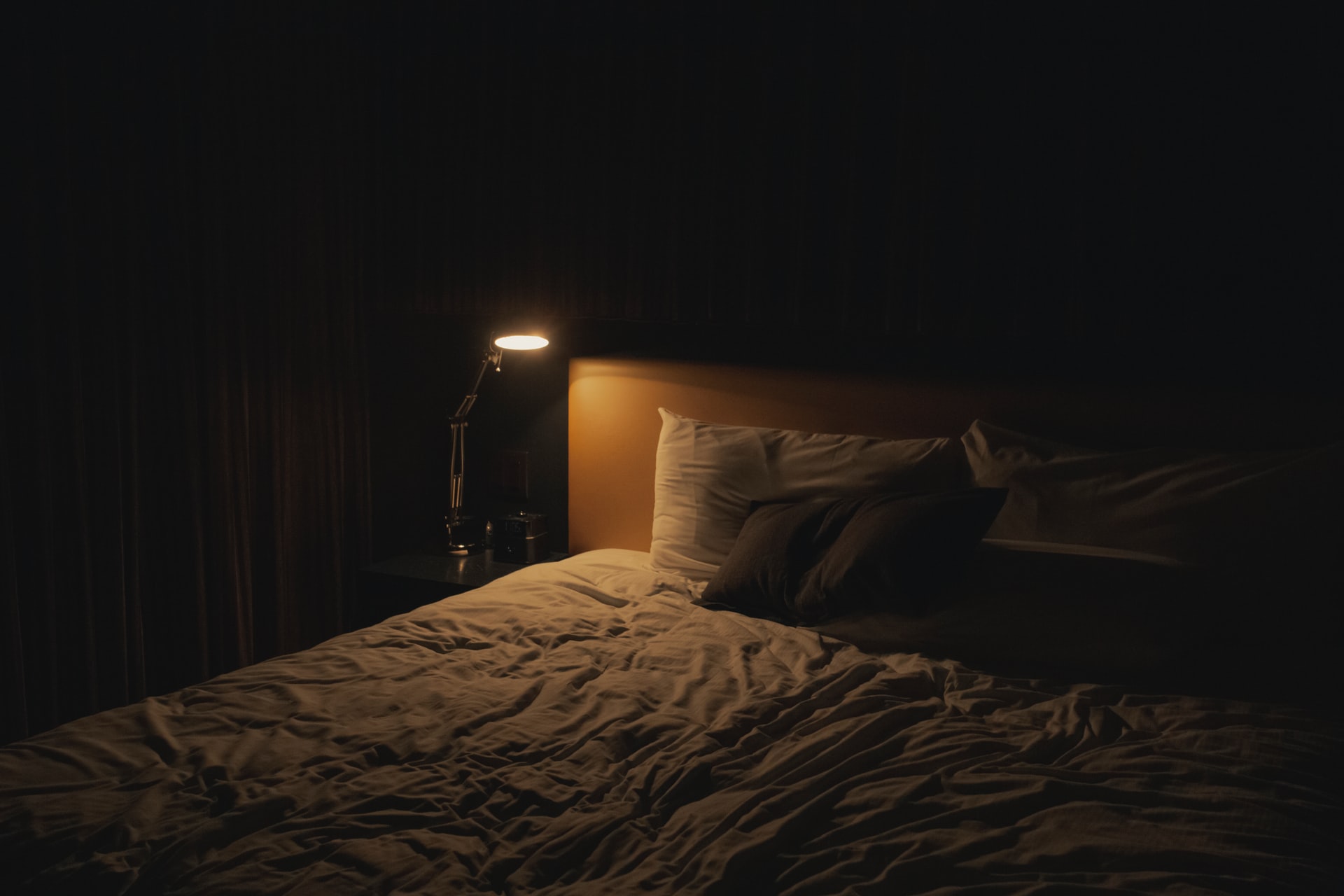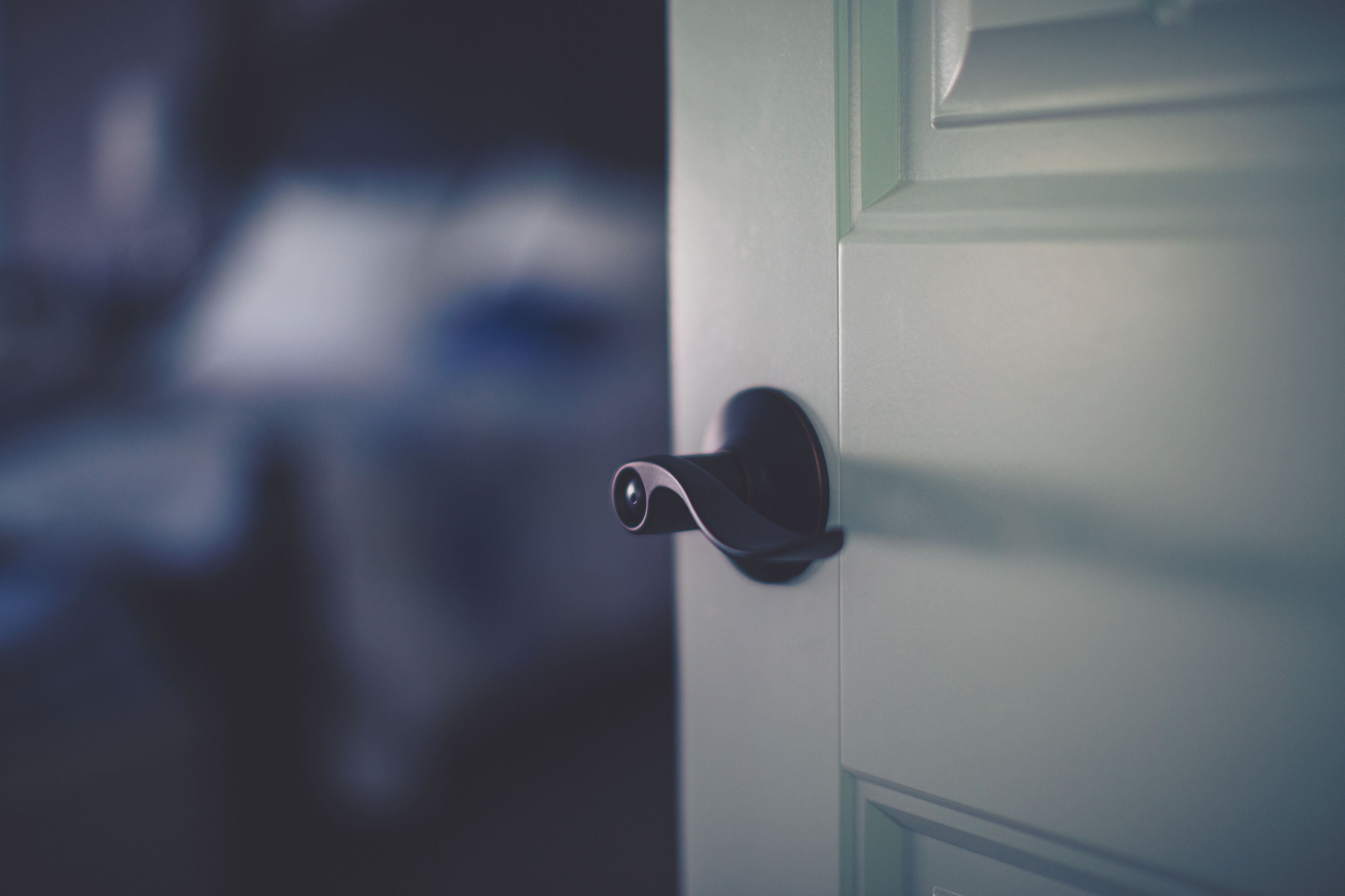The Importance of a Closed Bedroom Door

As we drift off to sleep each night, our bedrooms become our personal sanctuaries, offering respite from the outside world. But have you ever considered the impact of a simple act – closing your bedroom door? This seemingly insignificant gesture can have a profound influence on our well-being and create a more restful and secure environment.
Privacy and Peace
A closed bedroom door establishes a clear boundary between your private space and the rest of the house. It creates a sense of privacy, allowing you to relax and unwind without feeling exposed or disturbed. This is particularly important in shared living spaces where noise and distractions can be constant. Closing your door creates a quiet haven where you can focus on yourself, whether reading a book, meditating, or simply enjoying some peaceful solitude.
Reduced Noise
Noise pollution is a significant disruptor to sleep quality. Closing your bedroom door can effectively minimize noise from the hallway, other rooms, or even outside. This can be especially beneficial if you live in a busy household or a noisy neighborhood. A closed door acts as a sound barrier, absorbing and dampening noise, creating a more tranquil environment conducive to restful sleep.
Improved Sleep Quality
Numerous studies have demonstrated the positive impact of a dark, quiet, and cool bedroom environment on sleep quality. Closing your bedroom door contributes to this ideal sleep environment by minimizing light and noise distractions. A closed door creates a sense of enclosure and security, allowing your body and mind to relax and enter a deeper, more restorative sleep.
Safety and Security
While a closed bedroom door may seem like a minor detail, it can contribute to a sense of safety and security. It acts as a physical barrier, deterring unwanted intrusions and providing a sense of personal space. In the event of an emergency, a closed door can help contain smoke or fire, providing valuable time for escape.
Factors Influencing the Decision: Close Bedroom Door At Night

The decision to close or leave your bedroom door open at night is a deeply personal one, influenced by a complex interplay of factors. While some might prefer the sense of openness and connection, others prioritize privacy, security, or even the need for a cooler or warmer sleep environment.
Personal Preferences, Close bedroom door at night
Personal preferences are the driving force behind many choices, and the decision to close or leave a bedroom door open is no exception. Some individuals value privacy and prefer to shut out the world when they sleep, creating a sense of sanctuary within their own space. Others, however, might find the open door comforting, feeling less isolated and more connected to their surroundings.
Living Situation
The living situation can significantly impact the decision to close a bedroom door. For example, in a shared living space, like a dormitory or a house with multiple roommates, closing the door might be necessary for privacy and sound insulation. Conversely, in a single-person dwelling, the door might be left open for a sense of openness and to facilitate airflow.
Security Concerns
Security concerns are often a major factor in the decision to close a bedroom door. Leaving a door open at night can make a home more vulnerable to intruders, especially in areas with higher crime rates. In such cases, closing the door, along with other security measures, might be considered a necessity.
Environmental Factors
Environmental factors, such as temperature and noise levels, can also influence the decision. If a bedroom is located in a noisy area, closing the door might be necessary to minimize noise intrusion and ensure a peaceful sleep. Similarly, if a bedroom is particularly hot or cold, leaving the door open might allow for better air circulation and temperature regulation.
Cultural Norms and Family Traditions
Cultural norms and family traditions can also play a significant role in shaping the decision to close or leave a bedroom door open. In some cultures, closing the bedroom door at night is considered a sign of respect and privacy, while in others, it might be viewed as a sign of separation or isolation. Family traditions, passed down through generations, can also influence these practices.
Pros and Cons of Keeping a Bedroom Door Open or Closed
| Factor | Keeping Door Open | Keeping Door Closed |
|---|---|---|
| Privacy | Less privacy | More privacy |
| Security | More vulnerable to intruders | More secure |
| Temperature Regulation | Better air circulation | Less air circulation |
| Noise Level | More noise intrusion | Less noise intrusion |
| Sense of Connection | More connected to surroundings | More isolated |
Alternatives to a Closed Door

Sometimes, the complete separation of a closed door might not be necessary or desirable. There are various alternatives that can achieve similar effects of privacy, noise reduction, or security without the need for a physical barrier. These options can be particularly helpful for creating a sense of personal space without completely isolating oneself from the rest of the house.
Using Curtains and Blinds
Curtains and blinds offer a versatile way to create a sense of privacy and separation without completely closing off a room. They can be drawn to obscure the view into the bedroom, providing a degree of visual privacy. Depending on the material and thickness of the curtains or blinds, they can also offer some sound dampening, reducing noise levels from the outside.
- Opaque curtains: These curtains are made of thick, non-transparent materials that block light and provide the most privacy. They can be especially effective for bedrooms that face busy streets or have windows close to neighbors.
- Sheer curtains: These curtains are made of lightweight, translucent fabrics that allow some light to filter through while still providing a degree of privacy. They can be a good option for bedrooms that need some natural light but also want a sense of separation.
- Roman shades: These shades are made of fabric panels that fold up when raised, providing a clean and modern look. They can be made of various materials, from lightweight fabrics to more substantial materials that offer better light and sound blocking.
- Blinds: Blinds are made of slats that can be adjusted to control the amount of light and privacy. They can be made of various materials, including wood, metal, or plastic.
Using Room Dividers
Room dividers are freestanding panels that can be used to create a visual and physical separation within a room. They come in a variety of materials, styles, and sizes, making them adaptable to different spaces and needs.
- Folding screens: These screens are made of lightweight panels that fold together for easy storage. They are a popular option for creating a temporary separation, such as for dividing a bedroom into a sleeping area and a study area.
- Freestanding shelves: These shelves can be used to create a visual barrier while also providing storage space. They are a good option for dividing a bedroom into different functional areas, such as a sleeping area and a dressing area.
- Curtain rods and fabric panels: Hanging fabric panels from a curtain rod can create a simple and effective room divider. The fabric can be chosen to match the decor of the room and can be easily adjusted or removed.
Using Sound-Dampening Materials
Sound-dampening materials can be used to reduce noise levels from the outside or from other parts of the house. They can be incorporated into the walls, ceiling, or floor, or used as freestanding elements.
- Acoustic panels: These panels are designed to absorb sound waves and reduce noise levels. They can be made of various materials, such as foam, fiberglass, or mineral wool.
- Thick carpets and rugs: Carpets and rugs can help to absorb sound and reduce noise levels, particularly in rooms with hard floors.
- Heavy curtains: Heavy curtains can help to block sound from outside the room, particularly if they are lined with an acoustic material.
Using Technology for Noise Control
Technology can also be used to control noise levels in a bedroom. There are various devices and applications that can help to block out unwanted sounds or create a more peaceful environment.
- White noise machines: These machines produce a constant, low-level sound that can help to mask other noises and promote relaxation.
- Noise-canceling headphones: These headphones use active noise cancellation technology to block out external sounds, providing a quiet and immersive listening experience.
- Sound-masking apps: These apps use a variety of sounds, such as nature sounds or ambient music, to create a more peaceful environment.
